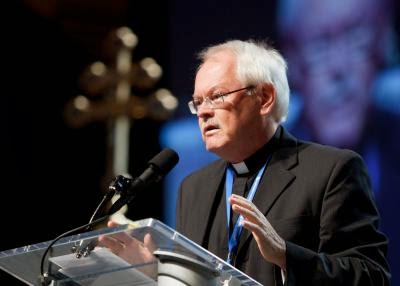He emptied
himself, taking the form of a slave,
coming in human likeness; and found human in appearance,
he humbled himself, becoming obedient to the point of death,
even death on a cross.
coming in human likeness; and found human in appearance,
he humbled himself, becoming obedient to the point of death,
even death on a cross.
Philippians 2:7-8
Sometimes it takes illness to
remind us of our limitations and humanity. None of us is exempt from the
onslaught of colds, flu, bacterial and viral infections, nor, in fact, the
ravages of age itself. Those of us who have reached milestone, and honoured
ages understand the process by which our physical goals diminish, but our
desire to achieve great things has no bounds!
The three-year journey of
Jesus to Jerusalem, during which he ministered, preached, healed, served and
loved came to a close, beginning with his entry into the city, greeted by the
cries of ‘Hosanna!’ and the heralding of palms. The coming week brought both
the agony and the ecstasy of his decision to accept the will and plan of God.
His acceptance is of heroic proportions and divine in accomplishment. He is not
the aged, sagacious Father of his People. He is young, at his peak, his
disciples have not yet understood his message, there is so much more he could
do – and yet everything he has said and done these past three years is leading
him, thrusting him to the tree of life.
These days of darkness and
shadows reveal the fullness of Jesus’ humanity as he struggles with the choices
before him, the finality of his decision, the acceptance of and release of his
self, his body, his life, for his Father, for us. Indeed, as Paul writes: He humbled himself, becoming obedient to the
point of death
What an awesome mystery this
is, what surrender, what passion.
A part of us too should ache
with the knowledge of that passion, for that is our share in the mystery. Join
us this Good Friday in worship as we remember and relive the Passion of Jesus, our
Lord and Saviour.
Peter Douglas
HEAD OF SCHOOL SERVICES, NORTH
PETER'S WHEREABOUTS FOR THE NEXT TWO WEEKS:
Peter will be available 8, 9 and 10 April at the Tenison Woods Centre.
MEETINGS COMING UP:
Jesus in the Garden by Ron Rolheiser
Rather the Gospels
deliberately understate what Jesus had to endure physically because they want
us to focus on something else, namely, his moral and emotional suffering,
particularly his sense of abandonment, his aloneness, the absence at the most
crucial time in his life of any deep human support, intensified by the seeming
absence of God. In his loneliest hour Jesus was without any human soul mate and
without divine consolation. He was, in the words of Gil Bailie,
unanimity-minus-one. There is no deeper sense of abandonment.
And it is within that
utter aloneness that Jesus has to continue to give himself over in trust, love,
forgiveness, and faith. It’s easy to believe in love when we feel loved; to
forgive others when they are gracious towards us; and to believe in God when we
feel strongly God’s presence. The difficulty, the “test”, comes when human love
and divine consolation collapse, when we find ourselves surrounded by
misunderstanding, abandonment, distrust, hatred, and doubt, especially at our
loneliest hour, just at that moment when life itself is eclipsing. How do we
respond then?
Will love, trust,
forgiveness, and faith collapse in our hearts when the emotional pillars that
normally sustain us collapse? Can we forgive someone who is hurting us when
that person believes that we are the problem? Can we continue to love someone
who hates us? Can we continue to believe in trust when everywhere around us we
are experiencing betrayal? Can we let our hands and hearts be opened,
stretched, and nailed to a cross even when we are fearful? Can we continue to
have faith in God when every feeling inside us suggests God has abandoned us?
Can we still hand over our spirit when we feel absolutely no human or divine
support? Where are our hearts when we are “a stone’s throw away” from everyone?
That, and not the
capacity to physically endure scourging and nails, was the real test inside of
Jesus’ passion. Jesus’ agony in the
Garden was not so much an agonizing as to whether he would allow himself to be
put to death or whether he would invoke divine power and escape. He recognized
that he was going to die. The question for him was rather how he would die:
Could he continue to surrender himself to a God and to a truth he had
previously known when this now seemed to be belied by everything around him?
Could he continue to trust? What kind of spirit would he hand over at the end?
Would it be gracious or bitter? Forgiving or vengeful? Loving or
hate-filled? Trusting or paranoid?
Hope-filled or despairing?
That will be our test too
in the end. One day each of us will also have to “give over” his or her spirit.
Inside of that unanimity-minus-one, will our hearts be warm or bitter?
FROM ST FINN BARR'S:
FROM ST BRIGIDS:
FROM OUR LADY OF LOURDES:
FROM MARIST REGIONAL COLLEGE:
FROM ST PATRICK'S COLLEGE - PROSPECT:
FROM SACRED HEART - ULVERSTONE:
FROM :
FROM ST JOSEPH'S - ROSEBERY:
FROM ST JOSEPH'S - QUEENSTOWN:
FROM ST ANTHONY'S:
FROM ST THOMAS MORE'S:
FROM OUR LADY OF MERCY:
FROM SACRED HEART - LAUNCESTON:
FROM ST PATRICK'S - LATROBE:
FROM STAR OF THE SEA:
FROM LARMENIER:
FROM ST BRENDAN SHAW COLLEGE:






























No comments:
Post a Comment